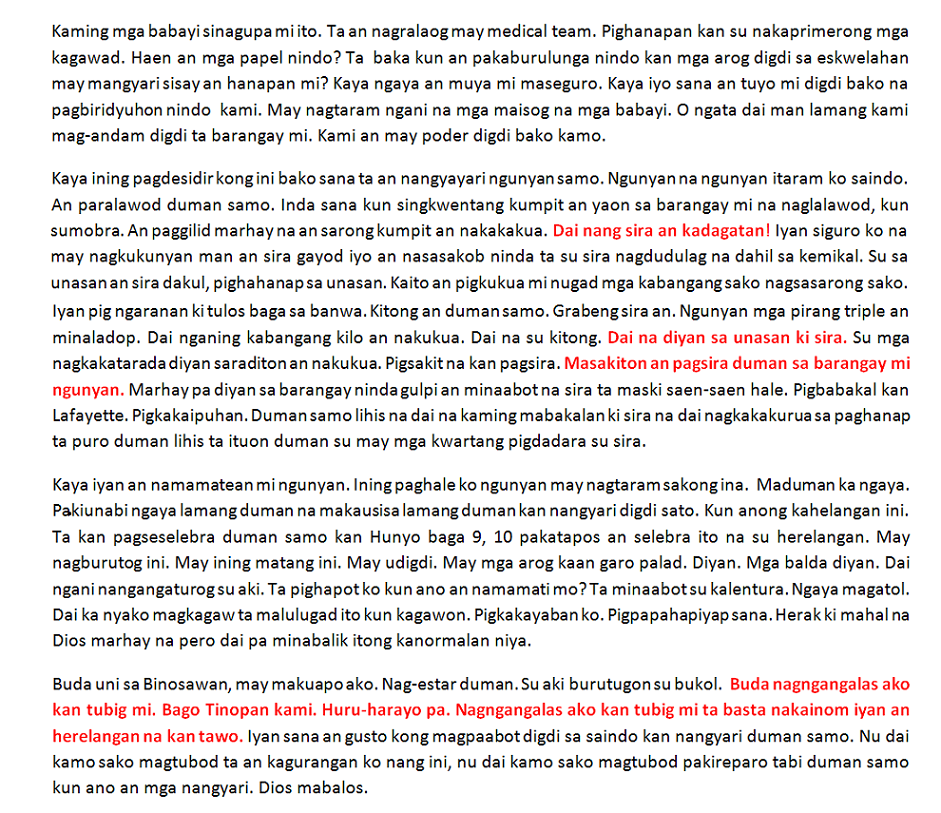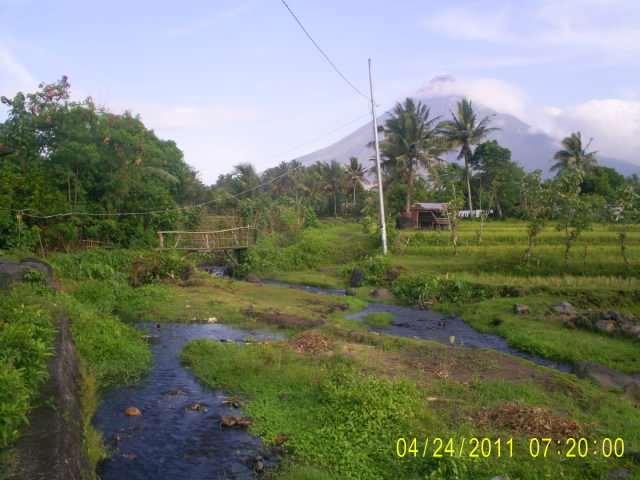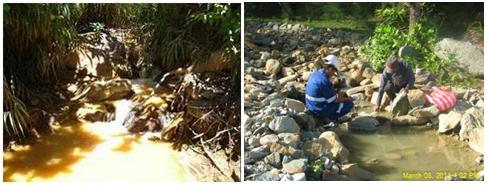NewsNotes, May-June 2009
Maryknoll Office for Global Concerns
A new study says the decline and loss of Philippine forests, fisheries and now mineral resources has seriously decreased food production. In their study Philippines: Mining or Food, Robert Goodland and Clive Wicks say the Philippines, once a major rice exporter, is now the world’s largest rice importer. They demonstrate the overlap of mining locations with indigenous ancestral domains, watersheds and areas of environmental importance – all critical for Philippine agriculture and food security. The complete report and a summary can be found here.
Goodland and Wicks say deforestation from the 1950s to the 1980s affected rainfall and the water supply, leading to a decline in rice production. Much of the country’s fisheries were subsequently lost due to poor management practices. The loss of forests and fisheries denied the poor – comprising perhaps half the population – two avenues to a sustainable livelihood.
“Despite these warnings,” the authors say, “the large-scale mining that is now proposed for the Philippines threatens to wreak further havoc … There is strong evidence from areas in which mining has already taken place ... that the extraction process damages rice production, often permanently.”
While the government presents mining as a means of lifting the country out of poverty, the study indicates mining creates relatively fewer jobs than agriculture, fisheries or tourism – about 0.4 percent of total employment – and says mines normally have a lifespan of just 10-20 years. The study notes that “(i)n most cases, the ore is exported unprocessed, just as unprocessed logs were exported during the massive deforestation of a few decades ago.”
Goodland and Wicks wrote their report based on a February 2008 visit to mines on the islands of Mindoro and Mindanao . Goodland discussed the report April 7 at a presentation in Washington , D.C.
He said 26 Philippine families benefit the most from mining. As the report states, “Mining profits accrue primarily to mining corporations, most of which are based outside the country; some go to the government, but little trickles down to poor Filipinos. Thus profits are privatized by companies while the costs are externalized to communities.”
A representative of the Philippine Embassy said the country’s Mineral Action Plan of 2004 sets high standards for the mining industry and includes strict provisions to protect the environment and indigenous people’s rights.
However, Goodland said the problem is a lack of enforcement. As the study says, “While the Philippines may appear to have some of the best laws in the world to protect the environment, human rights and Indigenous Peoples, their application is unacceptably poor. Many countries without such good legislation have far better practical protection for their people and environment.”
The study cites a number of negative factors that can affect the outcome of mining operations. “Mining … is especially precarious in areas of high rainfall (more than three meters per year); seismically active areas; steep slopes downstream of deforestation; and densely populated areas,” it says. “These conditions are common in the Philippines .”
The study also reports frequent conflict between the Philippine armed forces and members of local communities protesting mining. “This leads to further human rights abuses and undermines the constitutional position of the military as protector of the rights of Filipino citizens rather than multinational interests,” the study says.
Goodland and Wicks address recommendations to the government, mining companies, people affected by mining and others. Their primary recommendation is that the Philippine government declare a moratorium on new mining development. They also recommend a review of existing mining projects “to determine if they impact on food producing capacity, afford adequate protection to the environment and respect existing legal provisions and rights, including the requirement to obtain Indigenous Peoples’ Free and Prior Informed Consent.”
The Catholic Church in the Philippines will likely use the report to bolster similar arguments. Iloilo Archbishop Angel Lagdameo, president of the Catholic Bishops’ Conference of the Philippines , criticized mining companies late last year that had “systematically engaged in the rape of Mother Earth and left a legacy of impoverished communities and environmental [despoliation].” The archbishop said the Church wanted a moratorium on mining until “the government and the mining companies learn to uphold the right of the indigenous peoples, compensate the affected communities for past damages, and ensure responsible mining practices.”
































































































































No comments:
Post a Comment